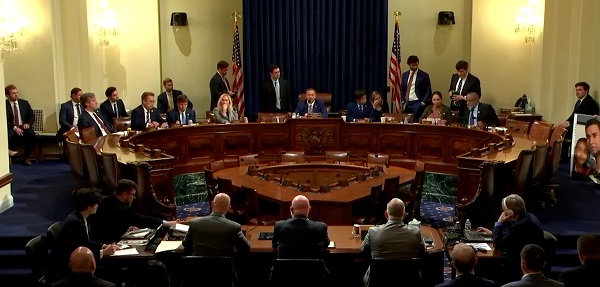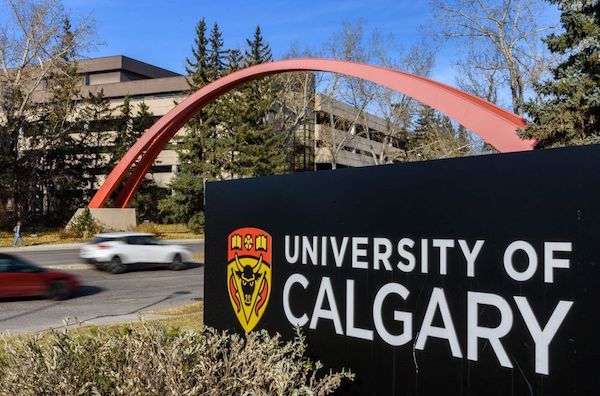Business
Forget DEI, we need to embrace MEI: meritocracy, excellence, and intelligence

From LifeSiteNews
Countering DEI globalists like BlackRock’s Larry Fink and the World Economic Forum, a young entrepreneur named Alexandr Wang has taken a stand, provided leadership, and is triggering a new movement—hiring and promoting based on MEI: merit, excellence, and intelligence.
Silicon Valley experienced an earthquake on June 13, 2024. This geological event was definitely not televised, but it triggered aftershocks from progressive corporate media like Fortune magazine (which, in a typical propaganda move, cites unnamed “experts” in its reporting on the topic). The earthquake was a consequence of the widespread excesses and consequences of the DEI (Diversity, Equity and Inclusion) hiring and promotion policies that have been actively promoted by the World Economic Forum and its leading corporatist sponsors including Blackrock, Vanguard, State Street and World Economic Foundation (WEF) favored consulting group McKinsey & Company.
To advance and enforce their DEI agenda, which plays a key role in the WEF-promoted vision of “Stakeholder Capitalism”, the WEF has created the “Global Parity Alliance”. The WEF, which defines itself as a key player in an emerging global government (in partnership with the United Nations), has structured this alliance of corporations to implement DEI initiatives across the globe rapidly.
The Global Parity Alliance, a cross-industry group of companies, is not just taking action, but accelerating it. Their urgency to promote diversity, equity and inclusion (DE&I) in the workplace and beyond is palpable, and their commitment to this cause is unwavering.
This group, the Global Parity Alliance, is not just a collection of companies. It’s a community of like-minded organizations, all striving for the same goal-better and faster DE&I outcomes. By sharing proven DE&I best practices and practical insights, they are inviting others to join them in this important work.
To realize the promise of diversity, the Global Parity Alliance members and identified DE&I lighthouses will work to close opportunity gaps faster in the new economy.
According to Blackrock CEO Larry Fink, the WEF DEI initiative intends to (quite literally) force the implementation of social engineering/”stakeholder capitalism” DEI policies as the basis for corporate hiring and promotion rather than focusing on profitability, return on investment, and shareholder/owner value measured by financial outcome measures.
The problem with this globalist “can’t we all get along” Kumbaya naïveté is that the dogs of investment are not eating the dog food. And, of course, inquiring minds are raising questions after the serial DEI financial fiascos of Target and its line of transgender attire for infants, InBev with its transgender Bud Light advertising campaign, Disney with its corporate commitment to woke/grooming everything, farming icon John Deere’s surprise discovery that flyover state farmers were not buying into its DEI genuflecting to the WEF, and WEF partner CrowdStrike crashing the world wide web.
To say that the financial genius of the WEF globalist leaders is looking a bit threadbare is a self-evident understatement. Oh yeah, and then there is the US Secret Service and the attempted Trump assassination. As covered in this recent Fox Business News segment, the natives are becoming restless, and drumbeats are being heard in the distance.
Now is an excellent time to remind all concerned that Larry Fink and Blackrock’s corporate financial ascendency is just another classic tale of DC/Democrat crony capitalism. Fink and company are not business masterminds. They are merely garden-variety Obama cronies parading around and masquerading as captains of industry. I admit to a growing sense of schadenfreude with the perverse logic inherent in all this. Perhaps merit-based selection of federal contractors actually results in better outcomes than just allowing politicians to develop public-private partnerships based on cronyism?
Please consider this AI-generated summary of BlackRock’s rise to global financial dominance, primarily based on “Times of India” reporting, for those who are not singing along with the bouncing ball.
During the 2008 financial crisis, BlackRock played a significant role in the Troubled Asset Relief Program (TARP) under the Obama administration. Here are key points:
- TARP’s Legacy Securities Program: In 2009, the Obama administration’s Treasury Department partnered with BlackRock to manage the Legacy Securities Program, a component of TARP. The program aimed to remove toxic assets from banks’ balance sheets, stabilizing the financial system.
- BlackRock’s Acquisition of Merrill Lynch’s Assets: In September 2008, BlackRock acquired a significant portion of Merrill Lynch’s troubled assets, including mortgage-backed securities, for $3 billion. This deal helped stabilize Merrill Lynch and prevented a systemic crisis.
- BlackRock’s Management of TARP Assets: As part of the Legacy Securities Program, BlackRock managed a portfolio of troubled assets, including mortgage-backed securities and other complex financial instruments. This role allowed BlackRock to profit from the recovery of these assets, while also helping to stabilize the economic system.
- Larry Fink’s Relationship with Obama: BlackRock’s CEO, Larry Fink, developed a close relationship with President Obama and his administration. Fink was a key advisor on financial matters, and BlackRock’s expertise was leveraged to inform policy decisions.
- Thomas Donilon’s Connection: Thomas E. Donilon, former National Security Advisor to President Obama, is currently the Chairman of the BlackRock Investment Institute. During his tenure as National Security Advisor, Donilon worked closely with Fink and other financial leaders, including Secretary of the Treasury Timothy Geithner.
Key Takeaways
- BlackRock played a crucial role in the Obama administration’s TARP program, managing troubled assets and helping to stabilize the financial system.
- Larry Fink’s relationship with President Obama and his administration was significant. Fink served as a key advisor on financial matters.
- Thomas Donilon’s connection to BlackRock, as Chairman of the BlackRock Investment Institute, highlights the firm’s continued influence in Washington, D.C.
What the AI missed is that BlackRock was able to leverage its special relationship with the Obama administration and the TARP program to produce the most globally comprehensive database of business transactions that the world has ever known. And then to exclusively datamine this rich insider resource to generate forward-looking predictions, which it leveraged to yield a globally dominant investment portfolio. And now, BlackRock has captured the exclusive (US, of course) contract to manage the rebuilding of Ukraine. Once the US/NATO military-industrial complex has succeeded in depopulating and then occupying that region. See how that works? Thanks, O’Biden/Uniparty. Let’s watch to see how that plays out.
Getting back on track.
As exemplified by the overlapping fiascos of CrowdStrike and the US Secret Service, the whole problem with DEI-based hiring and promotion policies is that they result in a gradual, creeping degradation of organizational competence, which I have previously covered in my recent substack essay titled “The Great Enshittening.”
Here’s the thing: In the 21st century, we are the inheritors of an interlaced network of complex systems, each requiring considerable competence to maintain and almost all of which are currently strained to the breaking point. Electricity grids, air traffic control networks, server farms, food supply chains, global shipping, petroleum, finance, the internet—the list goes on and on. They are all interdependent and at risk of cascading failure. And into this mix, the self-proclaimed geniuses of global governance have injected themselves and their untested theoretical fantasies of “Stakeholder Capitalism.” Which unproven theory is just another way of saying Marxist social engineering lathered up with a thin veneer of Adam Smith to reduce the friction of forced introduction.
Returning now to that Silicon Valley earthquake that I mentioned in the opening.
A young entrepreneur-genius (named Alexandr Wang) has taken a stand, provided leadership, and is triggering a new movement—sort of a back-to-the-future moment. Hiring and promotion based on MEI: merit, excellence, and intelligence. What a novel concept! Many (including Elon Musk) are jumping on this bandwagon and endorsing this breakthrough concept <sarcasm mine>, which was just the way things were in my youth. Little things like acceptance into medical school. Hiring and promotion. Back in the day, it was understood that the business of business was producing quality goods, services, and value, and deriving wealth from honest productivity.
To provide perspective and put in another plug for the Dean of anarcho-capitalism, Murray Rothbard, there are only two ways of accumulating wealth:
- Labor: Wealth can be accumulated through productive labor, where an individual creates value by providing goods and services to others. This approach is based on voluntary exchange, where individuals trade their labor for compensation, such as wages or profits.
- Theft: Wealth can also be accumulated through theft, where an individual takes wealth from others without their consent. This approach is based on coercion, where one party uses force or fraud to seize wealth from another.
Rather than quote derivative reporting from Fox Business News or even Callum Borchers of the Wall Street Journal, I prefer to let AI technology leader Alexandr Wang do the talking (originally on “X”, of course).
MERITOCRACY AT SCALE
In the wake of our fundraise, I’ve been getting a lot of questions about talent. All of our external success—powering breakthroughs in L4 autonomy, partnering with OpenAI on RLHF going back to GPT-2, supporting the DoD and every major AI lab, and the recent $1bn financing transaction—all of it is downstream from us hiring the best people for the job. Talent is our #1 input metric.
Because of this, I spend a lot of my time on recruiting. I either personally interview every hire or sign off on every candidate packet. It’s the thing I spend the plurality of my time on, easily. But everyone can and should contribute to this effort. There are almost a thousand of us now, and it takes a lot to hire quickly while maintaining, and continuing to raise, our bar for quality.
That’s why this is the time to codify a hiring principle that I consider crucial to our success: Scale is a meritocracy, and we must always remain one.
Hiring on merit will be a permanent policy at Scale.
It’s a big deal whenever we invite someone to join our mission, and those decisions have never been swayed by orthodoxy or virtue signaling or whatever the current thing is. I think of our guiding principle as MEI: merit, excellence, and intelligence.
That means we hire only the best person for the job, we seek out and demand excellence, and we unapologetically prefer people who are very smart.
We treat everyone as an individual. We do not unfairly stereotype, tokenize, or otherwise treat anyone as a member of a demographic group rather than as an individual.
We believe that people should be judged by the content of their character — and, as colleagues, be additionally judged by their talent, skills, and work ethic.
There is a mistaken belief that meritocracy somehow conflicts with diversity. I strongly disagree. No group has a monopoly on excellence. A hiring process based on merit will naturally yield a variety of backgrounds, perspectives, and ideas. Achieving this requires casting a wide net for talent and then objectively selecting the best, without bias in any direction. We will not pick winners and losers based on someone being the “right” or “wrong” race, gender, and so on. It should be needless to say, and yet it needs saying: doing so would be racist and sexist, not to mention illegal.
Upholding meritocracy is good for business and is the right thing to do. This approach not only results in the strongest possible team, but also ensures we’re treating our colleagues with fairness and respect.
As a result, everyone who joins Scale can be confident that they were chosen for their outstanding talent, not any other reasons. MEI has gotten us to where we are today. And it’s the same thing that’ll get us where we’re going, as we embark on our next chapter focusing on data abundance, frontier data, and reliable measurement to accelerate the development and adoption of AI models.
Alex
This statement quickly picked up an endorsement from someone who knows something about promoting excellence.

If you are committed to Making America Great Again, then be like Alex. Pursue MEI, not DEI, in all of your management practices.
For the sake of the broader community and mitigation of enshittification risk, if for no other reason.
Reprinted with permission from Robert Malone.
Business
Canada’s ‘supply management’ system makes milk twice as expensive and favours affluent dairy farms

From the Fraser Institute
By Fred McMahon
While the Canada-U.S. trade negotiations continue, with much speculation about potential deals, one thing is certain: Canada’s agricultural marketing boards remain a barrier to success.
A White House official said as much: “[Canada] has repeatedly demonstrated a lack of seriousness in trade discussions as it relates to removing trade barriers.” That’s a clear reference to agricultural marketing boards, our Iron Curtain trade barrier. International trade lawyer Lawrence L. Herman aptly described boards as “Canada’s Soviet-style supply management system.”
Agricultural marketing boards are as Canadian as maple syrup, but more so. Maple syrup is international. Supply management is uniquely Canadian. No other country has such a system. And for good reason. It’s odious policy, favouring an affluent few, burdening the poorest, and creating needless friction with allies and trading partners.
President Trump’s distaste for the boards is well known. But, it’s not just Donald. The European Union, the United Kingdom, the World Trade Organization (effectively all of Canada’s trading partners)—and, wait for it, the majority Canadian farmers—all oppose the boards.
Canada claims to support free trade, except when we don’t. Canada seals off a large portion of its agricultural market with the system, but gets irritable when another country closes part of its market—say for autos, aluminum or steel.
Marketing boards employ a variety of tools, including quotas and tariffs, and a large bureaucracy to block international and interprovincial trade and deprive Canadians of choice in dairy, eggs and poultry. Without competition, productivity stagnates and prices soar.
The cost of living in the United States is 8.4 per cent higher than in the Canada, rent 14.9 per cent higher. But, thanks to our marketing boards, milk is twice as expensive—C$3.07 a litre on average in Canada versus C$1.47 in the United States. The most recent estimate of the cost of the system revealed, using 2015 data, that the average Canadian household pays an extra $300 to $433 annually because of marketing boards, hitting hard poorer Canadians, who spend a higher portion of their income on food than affluent Canadians.
Martha Hall Findlay, former Liberal MP and leadership contender, now director of the University of Calgary’s School of Public Policy, wrote with outrage, “The average Canadian dairy farm’s net worth is almost $4 million…. This archaic [supply-management] system forces a single mother on welfare to pay hundreds of dollars more per year than she needs to, just so we can continue to enrich a small number of cartel millionaires… members of the oft-vilified ‘one-percent’.”
Don’t expect meaningful negotiations. Canada’s Parliament, endorsed by the Senate, recently unanimously passed Bill C-202, which prohibits the foreign affairs minister from negotiating increased quotas or reduced tariffs for imports of supply-managed products.
The dairy industry, particularly in Quebec, is the big player. To protect this mighty lobby, Bloc Québécois Leader Yves-François Blanchet proposed C-202, backed by all parties, fearing a Quebec backlash if they stood up for Canadians, including for Quebecers who lack the privilege of owning one of province’s 4,200 multi-million-dollar dairy farms of Canada’s 9,400.
The Canadian Agri-Food Trade Alliance (CAFTA), Grain Growers of Canada (GGC), and other farm groups oppose C-202. Scott Hepworth, acting chair of GGC, said, “Parliament chose to prioritize one group of farmers over another. As a grain producer, I know firsthand how important international trade is to my family’s livelihood. Without reliable access to global markets, farmers like me are left behind.”
Canada has 65,000 grain farms and 53,000 pig and beef farms, compared to 14,700 supply-managed farms, less than one per cent of the total of 190,000 farms in Canada.
Marketing boards benefit a tiny minority of Canadian farmers while damaging the majority and increasing prices for all Canadians. One benefit of Donald Trump’s trade war against Canada has been the resolve on all levels of government to reduce home-grown obstacles to growth, including iron trade curtains between provinces.
The spineless response to C-202 reveals the weakness of that resolve and politician’s willingness to bend the knee to rich lobbies, toss other farmers under the bus, and carelessly pile on costs for Canadians, particularly low-income ones.
Business
Conservative MPs denounce Liberal plan to strip charitable status of pro-life, Christian groups

From LifeSiteNews
Conservative MPs presented a petition in Parliament defending pro-life charities and religious organizations against a Liberal proposal to strip their charitable tax status.
Conservative MPs presented a petition calling for the rejection of the Liberals’ plan to strip pro-life charities and places of worship of their charitable status.
During the September 16 session, Conservative Members of Parliament (MPs) Andrew Lawton, Jacob Mantle, and Garnett Genuis defended pro-life charities and places of worship against Liberal recommendations to remove the institutions’ charitable status for tax purposes.
“I have received from houses of worship across this country so much concern, reflected in this petition, that these recommendations are fundamentally anti-free speech and anti-religious freedom,” Lawton told Parliament. “The petitioners, and I on their behalf, advocate for the complete protection of charitable status regardless of these ideological litmus tests.”
Similarly, Mantle, a newly elected MP, added that Canadians “lament that some members opposite are so blinded by their animus towards charitable organizations that they would seek to undermine the good works that these groups do for the most vulnerable Canadians.”
Religious charities provide care and compassion to the most vulnerable in our society, but some members of the Liberal and New Democratic parties are so blinded by their animus towards religion and faith that they are actively seeking to revoke the charitable status of ALL… pic.twitter.com/O12rkw3pJ0
— Jacob Mantle (@jacobmantle) September 16, 2025
Finally, Genuis, who officially presented the petition signed by hundreds of Canadians, stressed the importance work accomplished by religious and pro-life organizations.
“(R)eligious charities in Canada provide vital services for society, including food banks, care for seniors, newcomer support, youth programs and mental health outreach, all of which is rooted in their faith tradition, and that singling out or excluding faith charities from the charitable sector based on religious belief undermines the diversity and pluralism foundational to Canadian society,” he explained.
As LifeSiteNews previously reported, before last Christmas, a proposal by the all-party Finance Committee suggested legislation that could strip pro-life pregnancy centers and religious groups of their charitable status.
The legislation would amend the Income Tax Act and Income Tax. Section 429 of the proposed legislation recommends the government “no longer provide charitable status to anti-abortion organizations.”
The bill, according to the finance department, would require “registered charities that provide services, advice, or information in respect of the prevention, preservation, or termination of pregnancy (i.e., destroying the unborn)” to disclose that they “do not provide specific services, including abortions or birth control.”
Similarly, Recommendation 430 aims to “amend the Income Tax Act to provide a definition of a charity which would remove the privileged status of ‘advancement of religion’ as a charitable purpose.”
Many Canadians have warned that the proposed legislation would wipe out thousands of Christian churches and charities across Canada.
As LifeSiteNews reported in March, the Canadian Conference of Catholic Bishops (CCCB) appealed to the Liberal government to rethink the plan to strip pro-life and religious groups of their tax charity status, stressing the vital work done by those organizations.
-

 COVID-192 days ago
COVID-192 days agoFreedom Convoy leader slams Canadian gov’t agency for praising its treatment of protesters
-

 Crime2 days ago
Crime2 days agoStruggle for control of the Sinaloa Carel has ramifications for Canada
-

 Crime2 days ago
Crime2 days agoU.S. Lawmakers Confront Chinese Government Conspiracy Behind Marijuana Boom
-

 COVID-192 days ago
COVID-192 days agoCanadian gov’t to take control of vaccine injury program after reports of serious mismanagement
-

 Addictions1 day ago
Addictions1 day agoNo, Addicts Shouldn’t Make Drug Policy
-

 Censorship Industrial Complex1 day ago
Censorship Industrial Complex1 day agoThe FCC Should Let Jimmy Kimmel Be
-

 Alberta1 day ago
Alberta1 day agoEducation negotiations update: Minister Horner
-

 Business1 day ago
Business1 day agoThe Real Reason Tuition Keeps Going Up at Canada’s Universities







